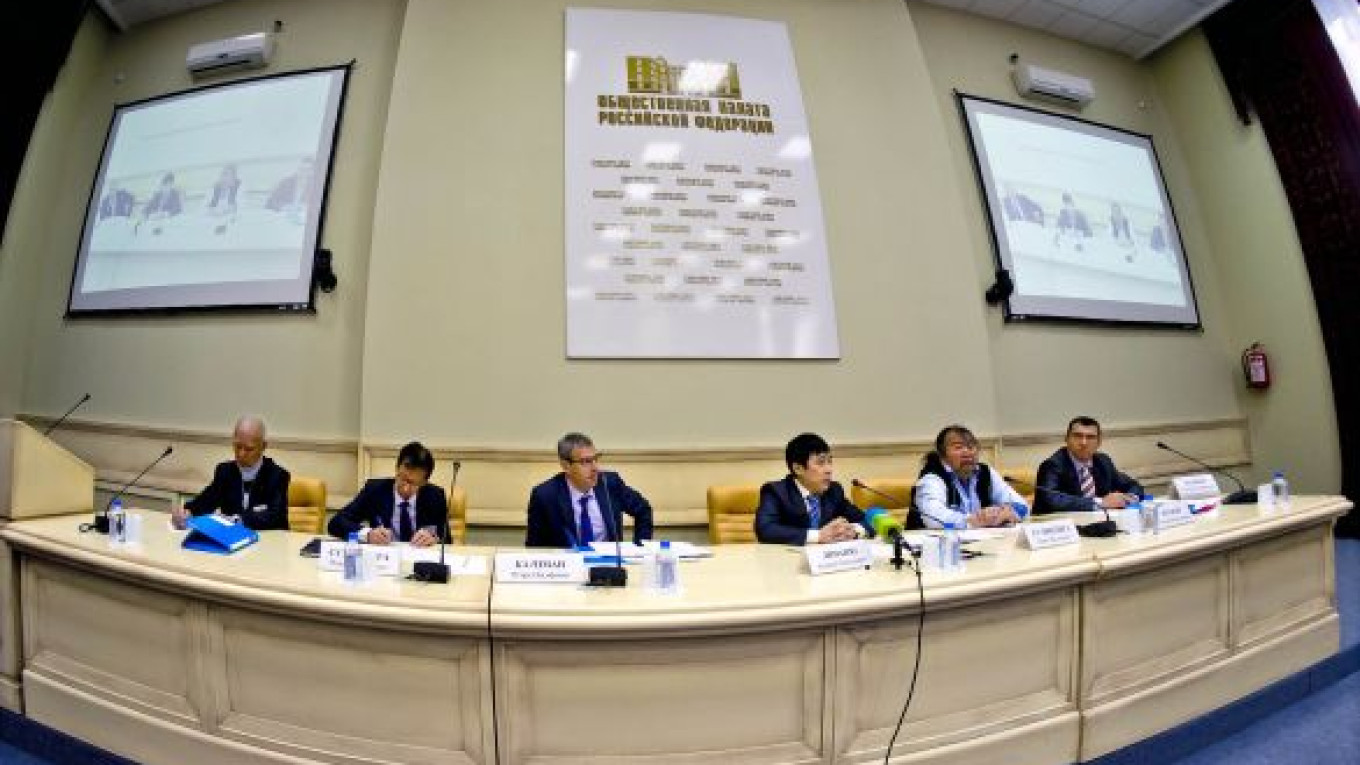Lawmakers, ministers and representatives of 40 ethnic groups from the far north, Far East and Siberia said Tuesday that the state should change its approach to save Russia's ethnic minorities, some of which number less than 300 people.
While the state is trying to solve the problem mostly by promoting the culture of these peoples, they seek to save their traditional economic activities, such as deer-breeding, fishing, hunting, gathering and craftsmanship.
"The disappearance of traditional economic activities is leading to our extinction. Only a revival of deer-breeding may save our culture, language and traditional way of life," said Valeria Savran, a representative of the Nganasan from the Taimyr district of the Krasnoyarsk region.
The Nganasans were included in the Red Book after their number plummeted to 800 people.
The activity of communities that unify ethnic groups to organize their work in modern conditions is regulated by more than 20 laws.
"But documents are one thing, and reality is absolutely another. The situation is getting worse," said Pavel Sulyandziga, a Public Chamber member and head of the UN working group on human rights and multinational corporations.
Some 257,000 representatives of ethnic groups that are on the verge of extinction populate 28 of Russia's 83 regions, which is only 2 percent of their respective region's population.
Although the state encourages small ethnic groups to be involved only? in the traditional subsistence economy, it strictly controls their activity by distributing fishing and hunting quotas, which were introduced during the Soviet era. As a result, many are imprisoned for poaching.
"The government's attempts are aimed at survival, not at development," Sulyandziga said.
State Duma Deputy Grigory Ledkov, a member of United Russia, said the situation is difficult because current law specifies neither? rules for identifying members of ethnic groups nor definitions of traditional economic activities.
That is why government subsidies for the development of ethnic groups haven't reached all eligible people.
Since 2009, the government has allocated 240 million rubles ($7.8 million) to the 28 regions populated by the groups, and the Regional Development Ministry oversees the expenditures.
But even the ministry acknowledged that this amount was not enough.
"But we can't persuade the Finance Ministry to increase the amount of money," said Alexei Yurakov, an official at the Regional Development Ministry.
However, the government policy for preserving and developing? ethnic groups could not be called inefficient because their population has risen 6 percent since 2010, he said.
"The main thing the communities want now is not subsidies but freedom from legislative limits so they can freely conduct their activities based on their traditional principles," said Alexei Limanzo, head of the Council of the Far North, the Far East and Siberia.
"The lands the ethnic minorities inhabit are rich in nonrenewable resources that are of special interest for the state," he said. "But the authorities don't take into account that their proposed conditions destroy the natural habitat of these groups and influence the opportunities for their development."
A Message from The Moscow Times:
Dear readers,
We are facing unprecedented challenges. Russia's Prosecutor General's Office has designated The Moscow Times as an "undesirable" organization, criminalizing our work and putting our staff at risk of prosecution. This follows our earlier unjust labeling as a "foreign agent."
These actions are direct attempts to silence independent journalism in Russia. The authorities claim our work "discredits the decisions of the Russian leadership." We see things differently: we strive to provide accurate, unbiased reporting on Russia.
We, the journalists of The Moscow Times, refuse to be silenced. But to continue our work, we need your help.
Your support, no matter how small, makes a world of difference. If you can, please support us monthly starting from just $2. It's quick to set up, and every contribution makes a significant impact.
By supporting The Moscow Times, you're defending open, independent journalism in the face of repression. Thank you for standing with us.
Remind me later.


